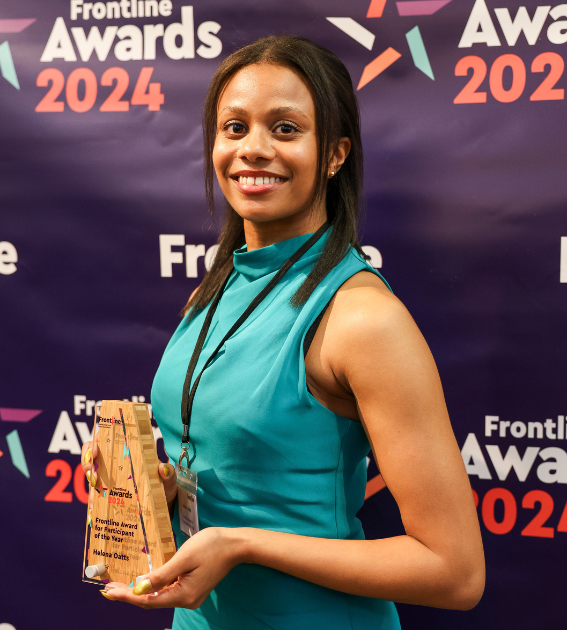This is your last chance to join the 2026 cohort this summer. Applications are open in select locations only. Don’t miss out!
Helena joined Approach Social Work (formerly known as the Frontline programme) in 2023. From the outset she knew the programme offered its challenges and its rewards, but was determined to learn, to grow into her social work role and to empower and support children and their families to thrive. As she approaches her second year on the programme, she reflects on why this was the best route for her.
As a career changer, how have you found your experience on the programme so far?
I have thoroughly enjoyed every aspect of the programme. I entered with the right mindset, knowing it would be challenging given its fast-paced nature, but also truly rewarding. With a background in mental health, I’ve always been passionate about helping others. Approach Social Work allows you to make a difference and helps you learn a lot about yourself and your unconscious biases, enabling you to offer the best version of yourself to those you interact with. I’ve faced many challenging moments, but the satisfaction comes from knowing I’ve supported people with dedication, respect and empathy.
How important is it that you earn while you learn on the programme?
If I wasn’t earning, I wouldn’t have participated in the programme. As a mother of two it’s crucial for me to be able to support my children while also maintaining independence, without having to depend on my husband.
What are the benefits of learning in a real-life setting?
I’ve applied the knowledge I’ve learned right away, which has helped me understand and retain the programme materials. This has enabled me to be creative in how I interact with children and families by choosing, adapting and blending the theories and interventions I’ve learned. The best part of learning in a real-life setting is knowing and accepting that it’s okay to make mistakes. If I had followed a more conventional route into social work, I wouldn’t have had the flexibility or confidence to continually try new approaches or the time to spend on improving my techniques.
How do you find that balance of learning and practice with children and families?
The two very much go hand in hand. Although the balance of learning and practice with children and families comes with its challenges, especially around assignment deadlines, I’ve implemented a few things to keep me on track:
- A schedule is key: I use digital calendars to set achievable learning objectives and schedule key dates such as teaching days.
- Protected time to learn: my regular study sessions are non-negotiable appointments in my diary and I strive to protect them even at busy times.
- It’s ok to ask for help: I have learned the importance of seeking help and being open to receiving support at the earliest opportunity.
Can you share an example of where you have made a difference in the life of a child, young person or family?
I supported a mother who felt disheartened by her interactions with professionals in the past. I therefore set out to help her to gain confidence and independence when engaging with professionals in different settings moving forward. For this we explored her family history by using a genogram, which identified reasons for her behaviour and gave me a better understanding of her story.
I shared these insights with other professionals, which helped them to understand her better and to approach the situation with cultural sensitivity. As a result, the mother felt more empowered to communicate effectively, leading to a better outcome for her children’s education.
What impact do you feel you have made in your first year on the programme?
I feel I have restored hope in the families I have been working with. Many have had negative experiences with social workers or a negative view of the role. By demonstrating empathy, understanding and building trust, I have shown them that I have their best interests at heart.
